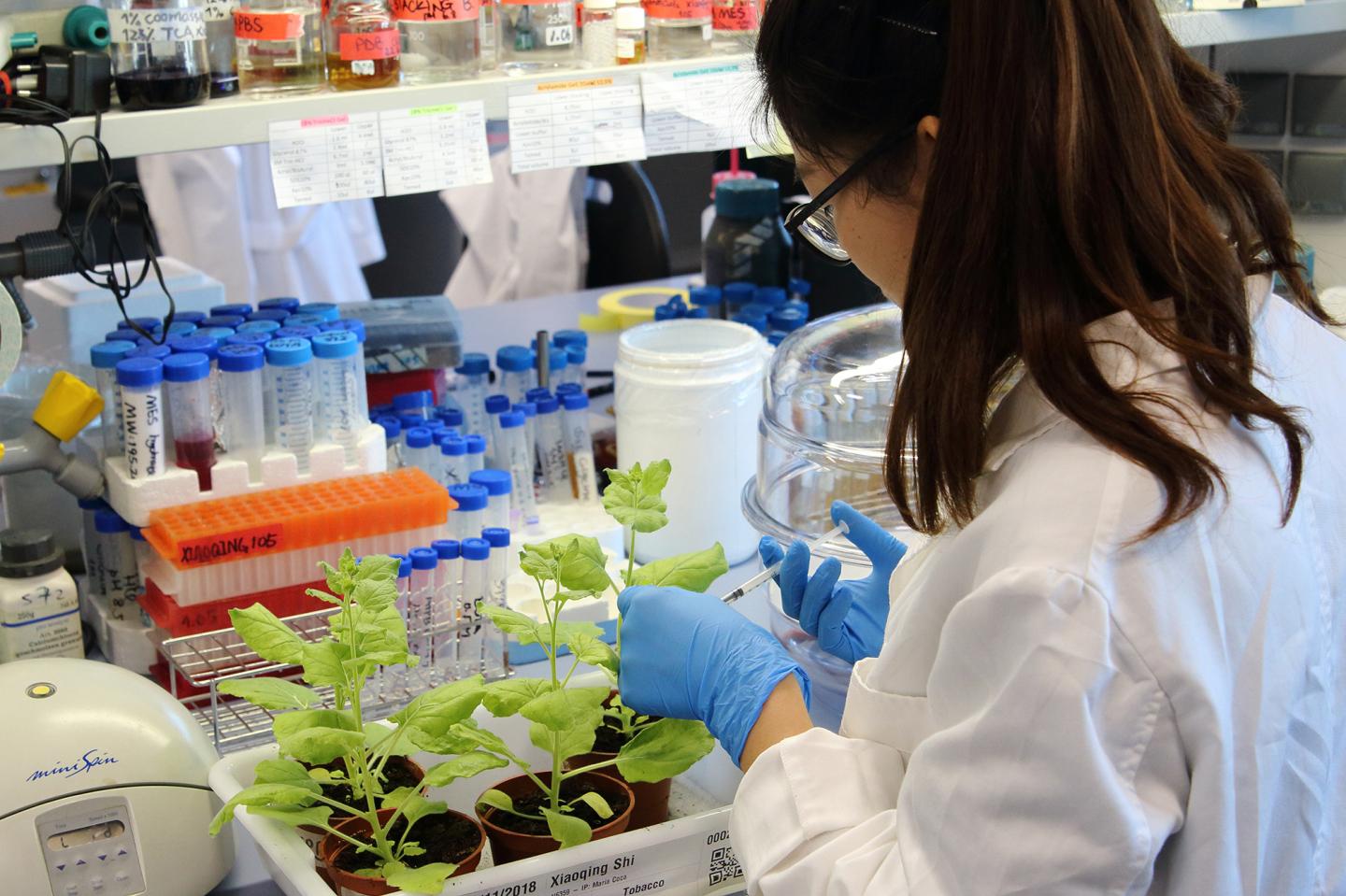The results of this research published in the Plant Biotechnology Journal could impact the pharmaceutical and agri-food industries

Credit: CRAG
Researchers from the Spanish Research Council (CSIC) at the Centre for Research in Agricultural Genomics (CRAG) and the Institute for Plant Molecular and Cellular Biology (IBMCP), in collaboration with the IATA, have developed a biotechnological tool to produce, in a very efficient manner, antifungal proteins in plants. The results of this research, that could impact the agri-food and pharmaceutical sectors, have been published this week in the Plant Biotechnology Journal.
Disease-causing fungi that infect plants, animals and humans pose a serious threat to human and animal health, food security and ecosystem resilience. More people die every year from fungal infections than from malaria. Furthermore, fungal infections can have fatal consequences for at-risk immunocompromised patients with HIV/AIDS and organ transplantation, among others. In addition, fungi are a challenge to food security because they destroy major crops globally and contaminate food and feed with mycotoxins that are detrimental to animal and human health.
New antifungals
Maria Coca, researcher at CRAG and one of the senior authors of the study, explains that “only a few classes of antifungal agents are available today, and even these are not fully effective due to the development of resistance, host toxicity, and undesirable side effects. Many of these compounds do not even comply with the regulations, and therefore they cannot be used. Thus, there is an urgent need to develop novel antifungals, whose properties and mechanisms of action represent improvements on the existing ones, and which can be applied in diverse fields, including crop and postharvest protection, preservation in cosmetics, materials and food, and animal and human health.” Coca’s research group, in collaboration with the IATA’s researcher Jose F. Marcos, aims to develop new antifungal compounds based on the antifungal proteins (AFPs) secreted by filamentous fungi. The problem is that the synthesis of these compounds is extremely complex; hence their exploitation requires efficient, sustainable and safe production systems.
A virus at the service of biotechnology
The CSIC researcher at the IBMCP José Antonio Daros is an expert in viruses that infect plants. Through genetic engineering, Daros and his team in Valencia managed to modify the tobacco mosaic virus (TMV) so that, instead of producing its own pathogenic proteins, it produced other proteins of interest. In Barcelona, the team led by Maria Coca implemented this tool to produce antifungal proteins in leaves of the Nicotiana benthamiana plant -a plant from the tobacco family widely used in research- discovering that these leaves produced large quantities of these new antifungals.
In addition, the researchers demonstrated that extracts recovered from the N. benthamiana plants are active against pathogenic fungi, being able to protect the tomato plant from the infection by the fungus Botrytis cinerea, better known as grey mould.
The work of the CRAG, IBMCP and IATA researchers shows that the plants can be used as biofactories of antifungal proteins for commercial purposes.
###
Media Contact
Zoila Babot
[email protected]
34-609-088-368
Related Journal Article
http://dx.
News source: https://scienmag.com/




